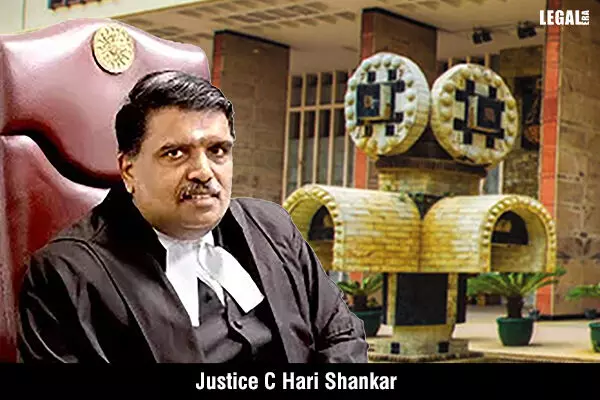- Home
- News
- Articles+
- Aerospace
- Agriculture
- Alternate Dispute Resolution
- Banking and Finance
- Bankruptcy
- Book Review
- Bribery & Corruption
- Commercial Litigation
- Competition Law
- Conference Reports
- Consumer Products
- Contract
- Corporate Governance
- Corporate Law
- Covid-19
- Cryptocurrency
- Cybersecurity
- Data Protection
- Defence
- Digital Economy
- E-commerce
- Employment Law
- Energy and Natural Resources
- Entertainment and Sports Law
- Environmental Law
- FDI
- Food and Beverage
- Health Care
- IBC Diaries
- Insurance Law
- Intellectual Property
- International Law
- Know the Law
- Labour Laws
- Litigation
- Litigation Funding
- Manufacturing
- Mergers & Acquisitions
- NFTs
- Privacy
- Private Equity
- Project Finance
- Real Estate
- Risk and Compliance
- Technology Media and Telecom
- Tributes
- Zoom In
- Take On Board
- In Focus
- Law & Policy and Regulation
- IP & Tech Era
- Viewpoint
- Arbitration & Mediation
- Tax
- Student Corner
- AI
- ESG
- Gaming
- Inclusion & Diversity
- Law Firms
- In-House
- Rankings
- E-Magazine
- Legal Era TV
- Events
- News
- Articles
- Aerospace
- Agriculture
- Alternate Dispute Resolution
- Banking and Finance
- Bankruptcy
- Book Review
- Bribery & Corruption
- Commercial Litigation
- Competition Law
- Conference Reports
- Consumer Products
- Contract
- Corporate Governance
- Corporate Law
- Covid-19
- Cryptocurrency
- Cybersecurity
- Data Protection
- Defence
- Digital Economy
- E-commerce
- Employment Law
- Energy and Natural Resources
- Entertainment and Sports Law
- Environmental Law
- FDI
- Food and Beverage
- Health Care
- IBC Diaries
- Insurance Law
- Intellectual Property
- International Law
- Know the Law
- Labour Laws
- Litigation
- Litigation Funding
- Manufacturing
- Mergers & Acquisitions
- NFTs
- Privacy
- Private Equity
- Project Finance
- Real Estate
- Risk and Compliance
- Technology Media and Telecom
- Tributes
- Zoom In
- Take On Board
- In Focus
- Law & Policy and Regulation
- IP & Tech Era
- Viewpoint
- Arbitration & Mediation
- Tax
- Student Corner
- AI
- ESG
- Gaming
- Inclusion & Diversity
- Law Firms
- In-House
- Rankings
- E-Magazine
- Legal Era TV
- Events
Delhi High Court Criticizes Assistant Controller for Cut-And-Paste Order: Grant or Rejection of Patent a Serious Matter

Delhi High Court Criticizes Assistant Controller for Cut-And-Paste Order: Grant or Rejection of Patent a Serious Matter
The Delhi High Court by its single judge Justice C Hari Shankar expressed its anguish over the order passed by the Assistant Controller Patents and Designs and observed that the orders refusing applications for grant of a patent cannot be passed mechanically and that any decision to grant or refuse a patent must be informed by “due application of mind” which must be reflected in the decision.
The Court was was hearing a plea moved by Dolby International AB against the order passed by the Assistant Controller of Patents on 29 January, 2023 rejecting its application for grant of patent.
The Court in the beginning itself was constrained to observe that the impugned order was “most unsatisfactorily drawn up” and it was hardly possible to “treat it as written or drafted.”
The Court commented that it was ‘impossible to understand’ where the reference to the claims begins in the impugned order, which part of it refers to the First Examination Report (FER) and where one is to find the reasoning of the Assistant Controller.
The Judge was of the considered view that solely because of the completely arbitrary manner in which the impugned order has been passed, that the Court was not in a position to examine the order on merit.
The Court reiterated that the officers in the office of the Controller of Patents and Designs must bear in mind the fact that the grant or rejection of a patent is a serious matter.
Moreover, the Court vehemently asserted that the Officer adjudicating the claim for registration of a patent must bear in mind the fact that the life of a patent is reckoned from the date when the application is made and not from the date when the patent is granted.
The Court specifically stated, “a patent is meant to be a recognition of the innovative step that has been put into a crafting of an invention. Inventions increment the state of existing scientific knowledge and, thereafter, are of inestimable public interest. Any decision, whether to grant or refuse a patent has, therefore, to be informed by due application of mind, which must be reflected in the decision.”
The Court noted the unreasonable delay in the grant of the patent results and said that its results in reduction of its residual life which can itself be a serious disinclination for inventors who seek to invent new and innovative methods, products or processes.
The Court discerned, “the impugned order, which cannot be said to satisfy even the most fundamental requisites of an order adjudicating on a claim for registration of a patent is, therefore, quashed and set aside.”
The Court deemed it fit to remand the matter back to the Controller of Patents for reconsideration and directed that the appellant shall be granted a hearing.
The Court exclusively specified that the case shall not be decided by the officer who had initially passed the impugned order.


